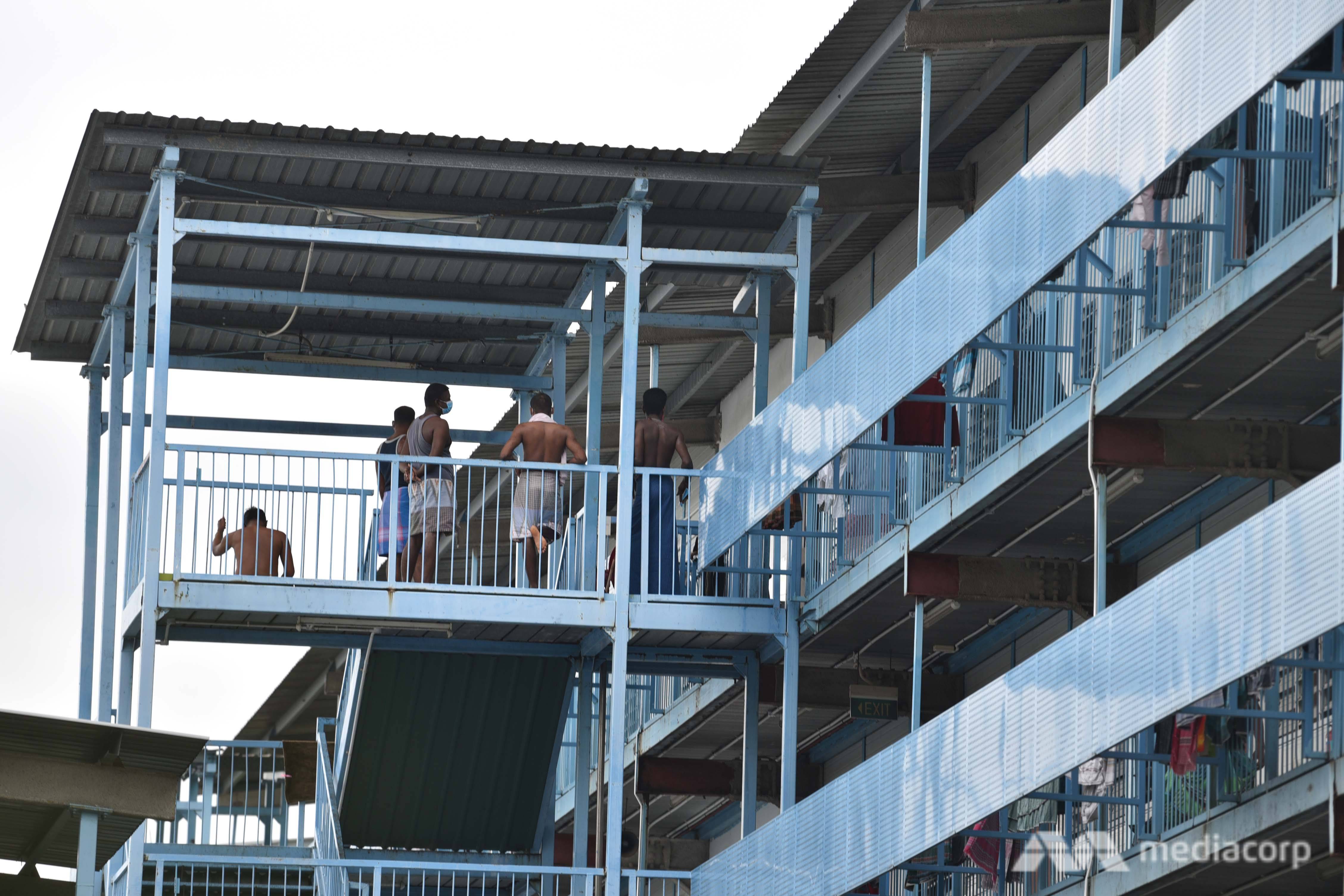SINGAPORE: A new COVID-19 cluster that emerged at Singapore’s biggest dormitory after it was declared “fully cleared” of the disease has grown to 175 cases in a week.
The Ministry of Health (MOH) on Friday (Aug 28) reported 80 more cases in dormitories, of whom 58 were from Sungei Tengah Lodge.
The dormitory at Choa Chu Kang Road, where more than 16,000 workers stay, was previously declared “fully cleared of COVID-19” on Jul 21 by the Ministry of Manpower (MOM). More than 2,200 cases were linked to it before the cluster was closed by MOH on Jul 18.
Sungei Tengah Lodge was gazetted as an isolation area on Apr 9 – among the first dormitories to go into isolation – under the Infectious Diseases Act. The notification was revoked on Jul 18.
READ: COVID-19: Dormitory with Singapore’s second largest cluster among 69 more dormitories cleared
But last Saturday, a new cluster of 57 cases emerged at the dormitory. On Sunday, MOM, MOH and the Building and Construction Authority (BCA) said about 4,800 workers there had been issued stay-home notices as a precaution, and that they would be tested over the “next few days”.
Since then, single-digit increases have been recorded nearly every day at Sungei Tengah Lodge, until Thursday.
On Thursday, 48 new cases were linked to the dormitory cluster, growing it to 117 cases. By Friday, that cluster grew to 175 cases, with the 58 new reported cases.
MOH said that the 58 cases reported had already been placed in quarantine. The “vast majority” of them were tested during quarantine to determine their status, or picked up during the ministry’s rostered routine testing.
It added that about 3,000 workers have been tested so far.
“We expect the number of cases from the dormitory to continue to be high in the coming days as we complete testing of the remaining quarantined workers.”
Sungei Tengah Lodge is not the only migrant worker dormitory where new COVID-19 clusters have emerged, despite being cleared of the disease.
A new cluster of five cases was reported at Homestay Lodge last Sunday, and now has seven cases. Homestay Lodge, a dormitory at Kaki Bukit Avenue 3, was previously cleared of COVID-19 on Aug 4.
A new cluster of six cases was reported at Tuas View Dormitory on Monday. The dormitory at Tuas South Avenue 1 was also previously cleared of COVID-19 on Aug 4.
More than 1,500 cases had been linked to the cluster at Tuas View Dormitory before it was declared to be cleared of COVID-19 – making it one of the biggest clusters in Singapore.
It was gazetted an isolation area on Apr 17 under the Infectious Diseases Act. That notification was revoked on Aug 4.

Foreign workers standing along the common corridor at Tuas View Dormitory on May 6, 2020. Tuas View Dormitory was gazetted as an isolation area to curb the spread of COVID-19. (Photo: Jeremy Long)
READ: New cluster found at Tuas View dormitory that was previously cleared of COVID-19
Manpower Minister Josephine Teo said on Wednesday that new COVID-19 cases found at the migrant worker dormitories are a result of routine testing, and these cases are surfacing as “part of the plan”.
Under new measures to ensure the safe resumption of work for migrant workers, those living in dormitories, among others, have to undergo COVID-19 tests every 14 days.
READ: New COVID-19 cases at dormitories detected by routine testing is ‘part of the plan’, says Josephine Teo
“We have planned for every single one in the construction, marine and process sector, as well as the people who come into close contact with them, to be regularly tested. So, the findings today are a result of those testing,” Mrs Teo said.
“That is what we are doing, it is part of the plan and it is surfacing as part of the plan.”
With the routine testing, clusters can be identified early, infected workers can be given appropriate care and their close contacts can be quarantined to contain the spread, she said.
COVID-19 cases among migrant workers in dormitories have formed the bulk of infections in Singapore. Authorities took about four months to test more than 300,000 workers.
BOOKMARK THIS: Our comprehensive coverage of the coronavirus outbreak and its developments
Download our app or subscribe to our Telegram channel for the latest updates on the coronavirus outbreak: https://cna.asia/telegram




